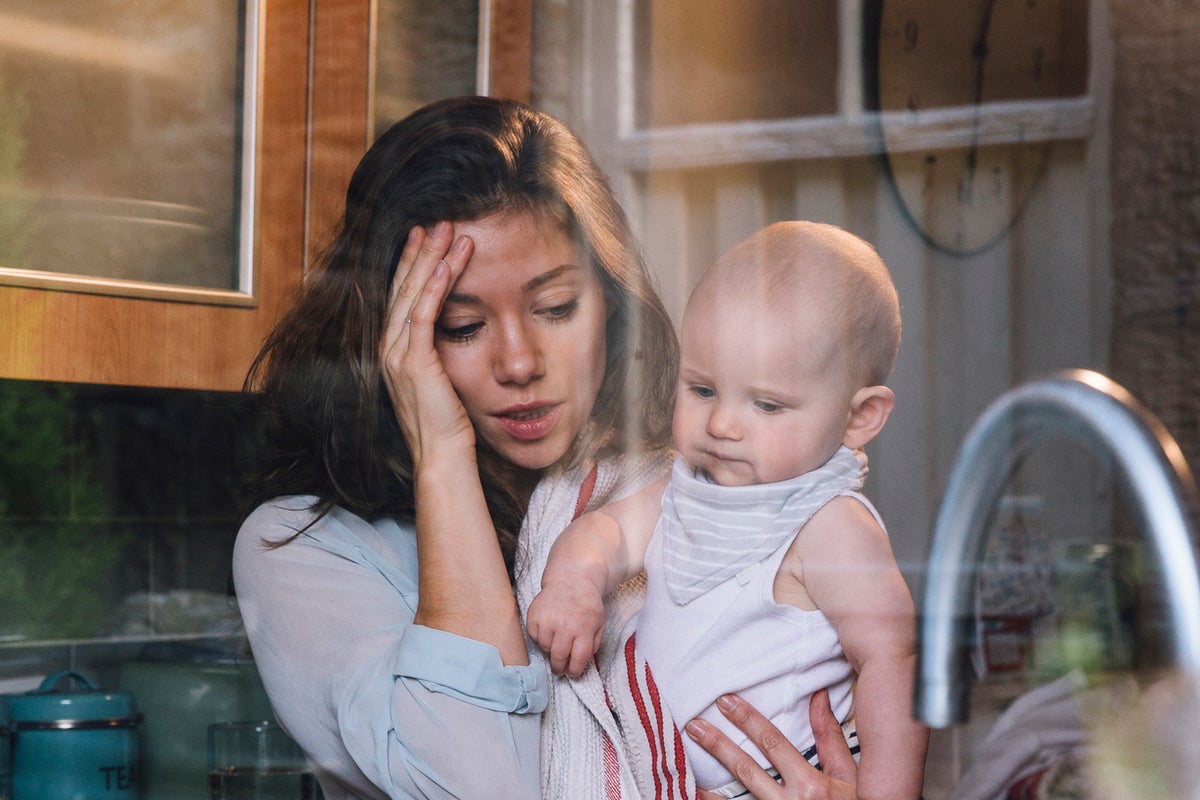Over 75 per cent of new and expectant mothers experience mental health struggles, according to a new survey.
The results paint a sobering picture of the difficulties faced by women, including barriers within the healthcare system, financial concerns, loneliness, sleep-deprivation and social media pressures.
Over 1,300 mothers voted in the survey, which was conducted by BabyCentre and released in time for Maternal Mental Health Week (5-11 May).
Three out of four mothers responding to the survey admitted to experiencing mental health challenges, while 78 per cent believe that UK mental health support falls short after birth.
Among the problems impacting the mental health of mothers are sleep deprivation (faced by 70 per cent of respondents), financial concerns (45 per cent) and loneliness (41 per cent).
Unpacking the most difficult and least discussed aspects of motherhood, the results also listed a loss of identity and independence as the biggest problem (47 per cent), while emotional outbursts and feelings of rage (42 per cent) and a feeling they had drifted from their partner or didn’t have time for their relationship anymore (39 per cent).
Elsewhere, fears around returning to work and balancing career with parenting featured prominently, with 39 per cent.
But the most “devastating” finding is described as the fact that six in 10 women talk themselves out of seeking help due to their “fear of being judged”. Nearly half admitted they didn’t ask for aid because they believe their problems “weren’t serious enough”.
BabyCentre said: “This suggests that many of the biggest emotional challenges are still not openly acknowledged, leaving mothers feeling alone in their experience.”
While most mothers struggle and feel they can’t ask for help, the minority who do reach out say that the help available is not good enough.
Only one in five British mums feel supported by the healthcare system when it came to dealing with their mental health. Only 22 per cent of people who turned to the NHS or healthcare services for maternal mental health assistance felt supported. Meanwhile, 78 per cent felt more needs to be done to support the emotional and mental health needs of new and expectant mothers.
Somewhat surprisingly, a significant proportion of respondents said that social media was a positive source of advice and support, with 48 per cent feeling that it was beneficial. But 37 per cent described feeling a sense of pressure to share an idealised version of motherhood on their profiles.
“Maternal mental health struggles are incredibly common, yet too often met with silence, self-blame, or inadequate support,” said Dr Angharad Rudkin, a registered psychological practitioner (HCPC).
“We must stop treating it as an exception and start seeing it as a normal and expected part of the transition to parenthood. What’s especially worrying is how many mothers are internalising their pain -believing it’s not ‘serious enough’ to justify help or fearing judgment if they speak up.
“This highlights a deeper cultural issue around perfectionism, stigma, and the unrealistic standards placed on women. We need to create an environment where emotional wellbeing is seen as important as physical recovery after birth: that asking for help is never mistaken as weakness but recognised as strength.”

